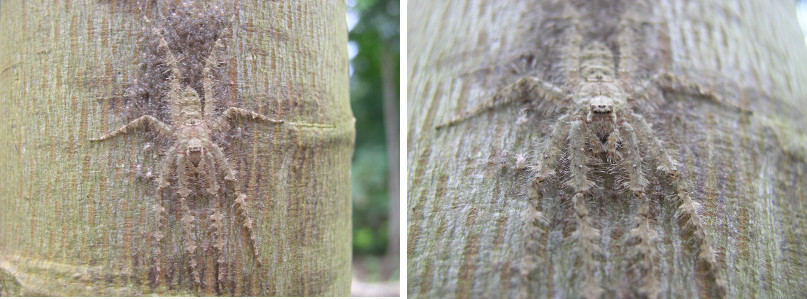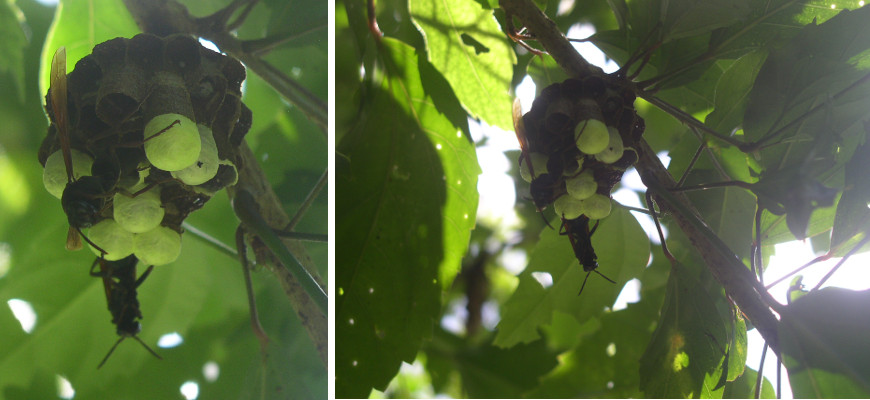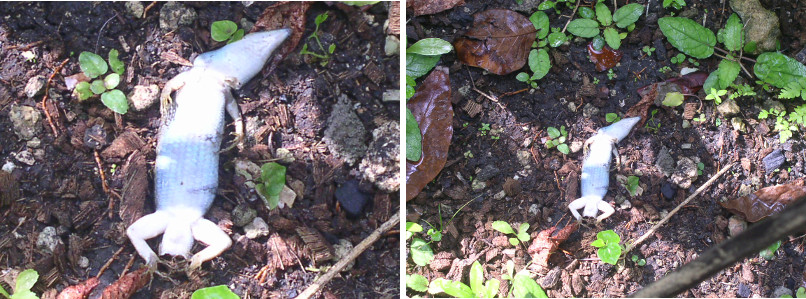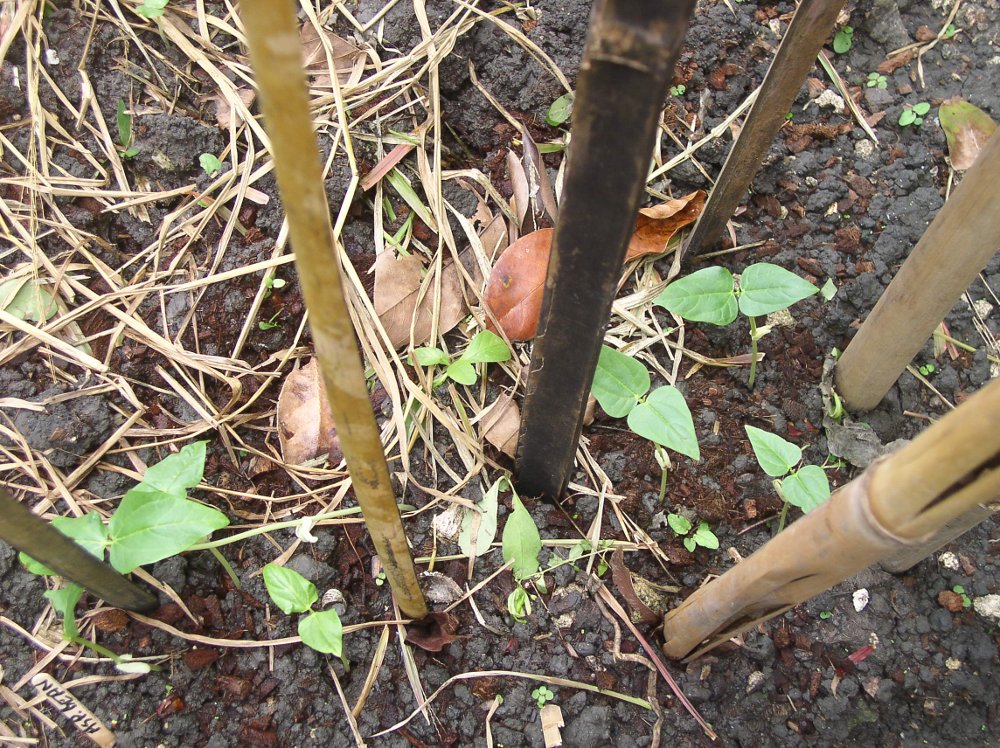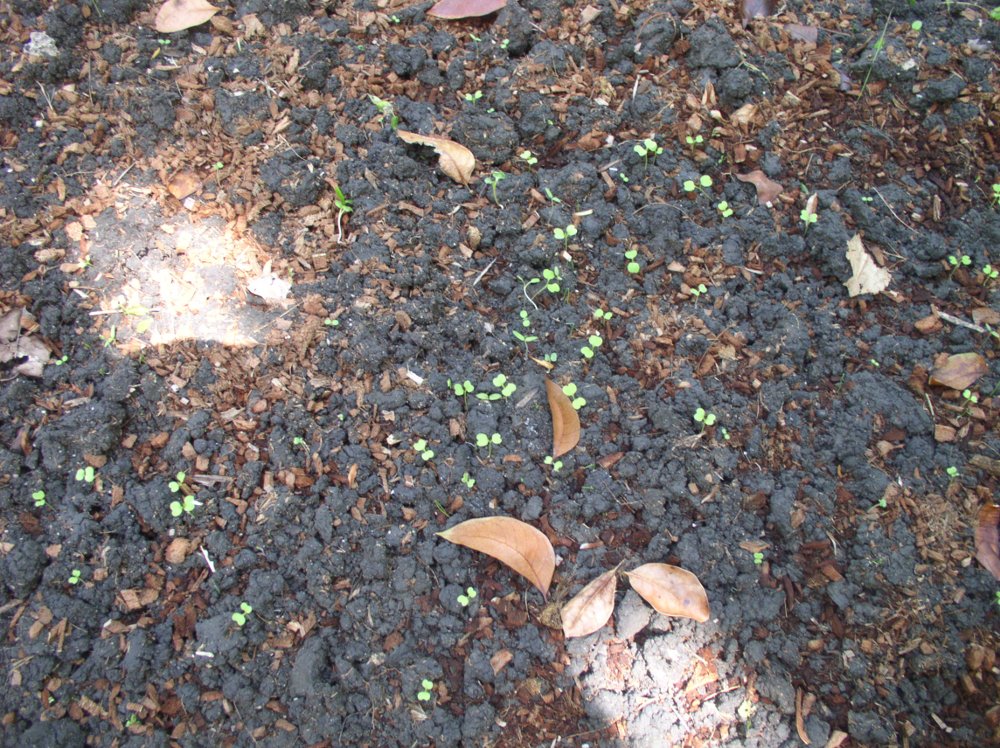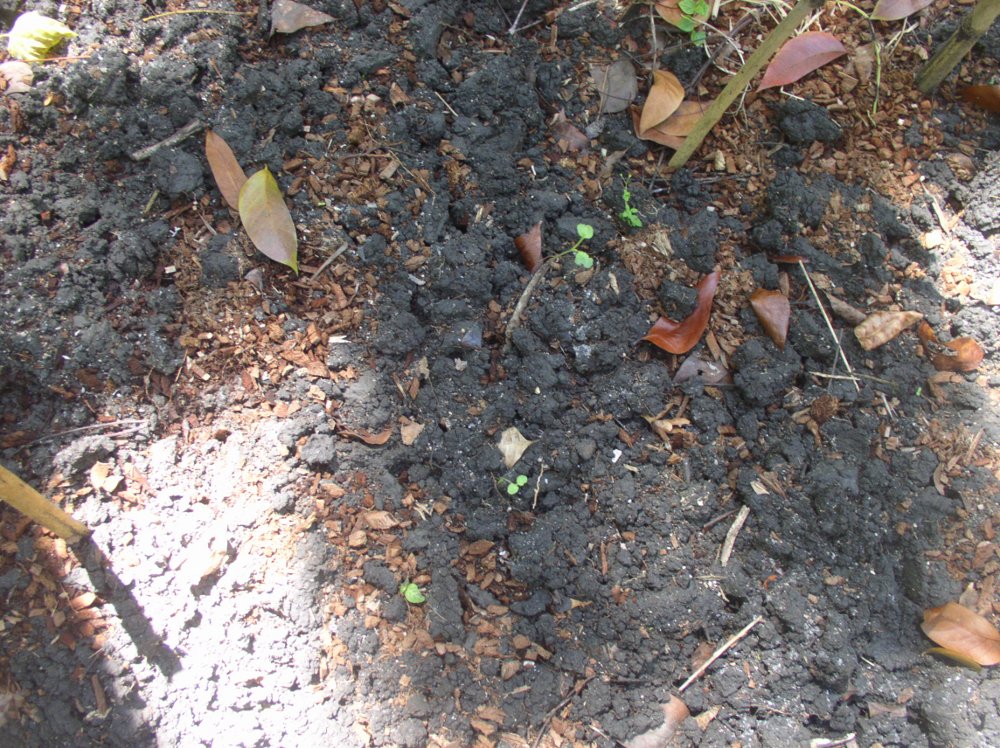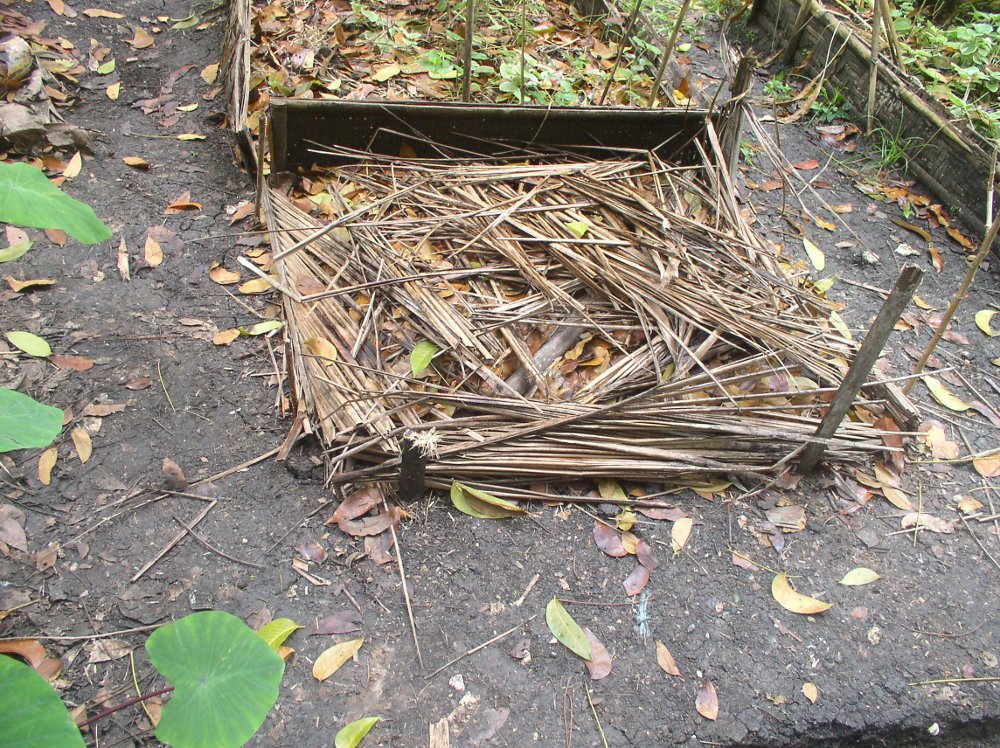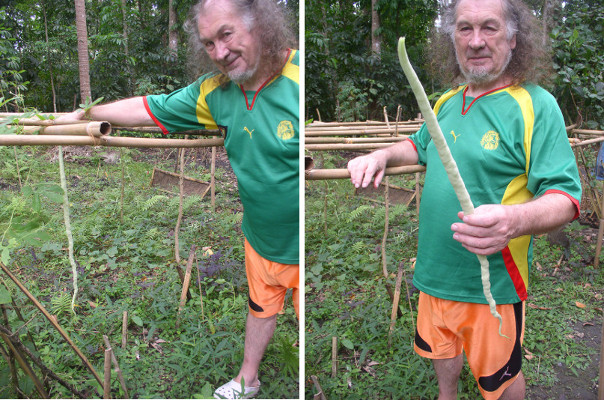Tropical Heritage Garden Diary:
March 2013:
Well Camouflaged Spider
01 March:
Miriah Amaranth, Poona Kheera
Cucumber, Aswad Eggplant, Pasilla Bajio hot pepper, Red Marconi
sweet pepper, Black Seeded Sesame planted in various patches in
lower of the two designated areas. Plus various other locations
in the garden.
Burmese Okra was soaked for several hours and some planted in
the same patch as the others. Rest left for next day (24 hours
soaking recommended)
Extra coconut chippings put on unplanted area -left to rot. Then
everything watered.
02 March:
First shoots seen from one each
of the beans and cow-peas planted 27 Feb (3 whole days ago).
05 March:
Miriah Amaranth, Poona Kheera
Cucumber, Aswad Eggplant, Pasilla Bajio hot pepper, Red Marconi
sweet pepper, Black Seeded Sesame -plus Red Creole Onion and Tokyo
Long White Bunching Onion -planted in walled patch with bamboo
frame and blue netting. Plus a some non-heritage carrot and radish
(Chinese, from ICM supermarket in Tagbilaren).
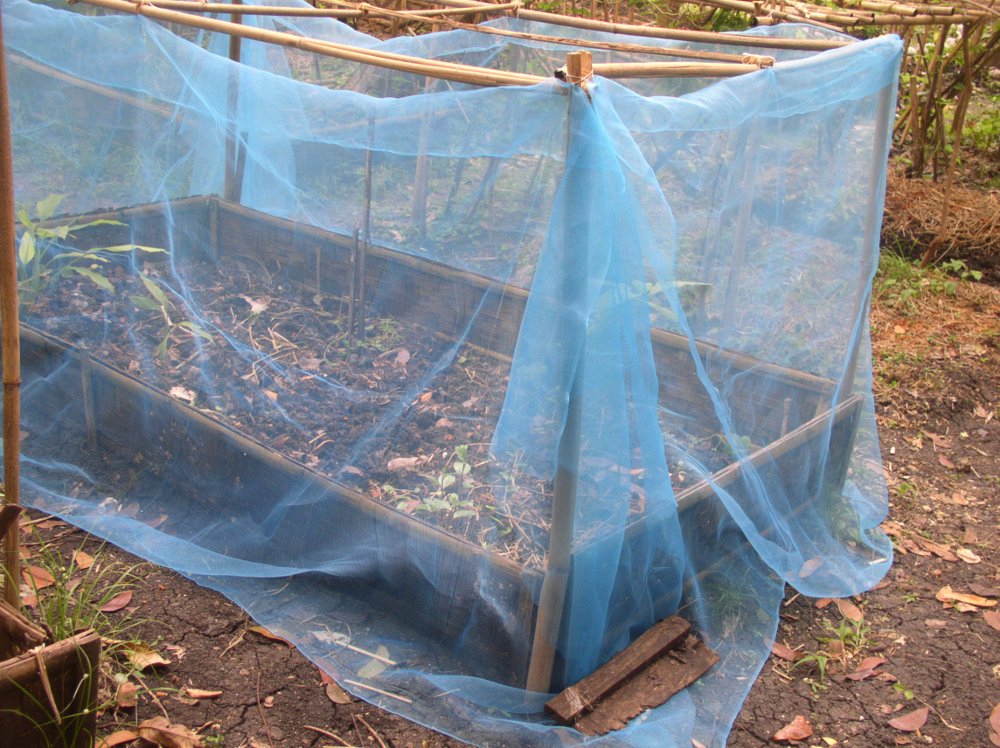 The newly planted secondary
patch
The newly planted secondary
patch
Planting was
done by mixing all the seeds, except the onions, together with
powdered soil in a small container -and then scattering over the
soil. The onions were then separately mixed with powdered
(sifted) soil and scattered separately on two different parts of
the patch -to give each onion type
Everything was thoroughly watered (twice in the case of the newly
planted seeds).
Some beans were also given to a few neighbours for planting.
Photo 5 March: Asparagus beans planted 27 Feb
Some rice
straw and chopped coconut husk is visible
06 March:
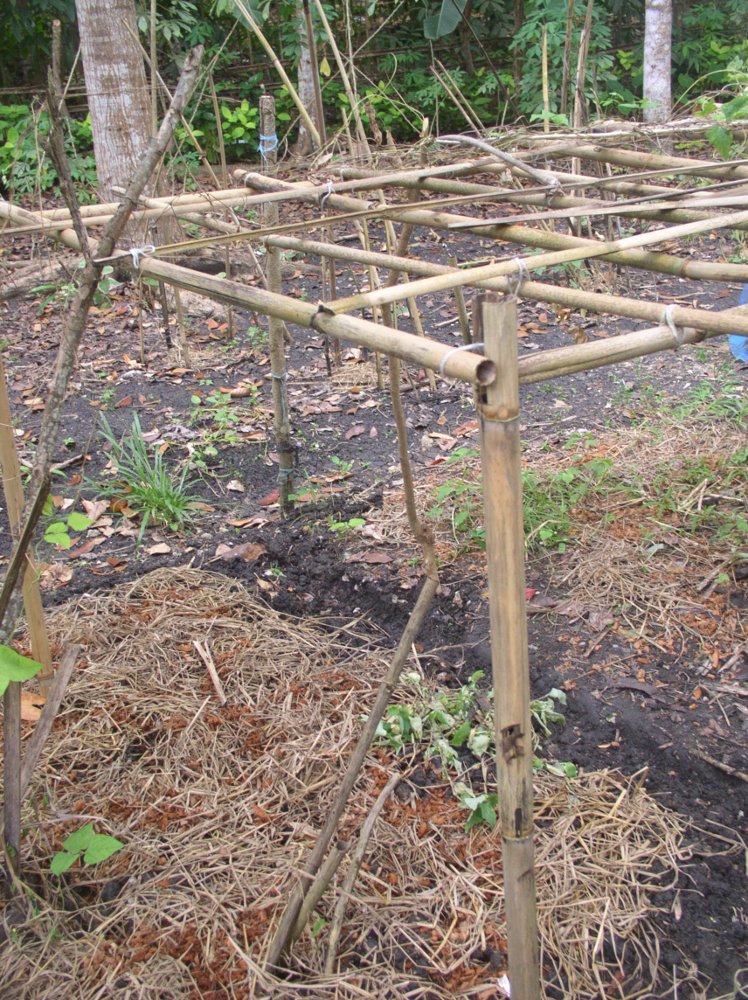 Squash patch ready
for planting
Squash patch ready
for planting
Lemon Squash,
Zucchini-Gray, White Bush Marrow and Seminole Pumpkin
planted in this prepared patch.
07 March:
Today, a neighbour gave us some
Pineapple 'slips' (shoots from the main plant). Local people say
that for every time one strikes the soil to dig the hole for the
new plant, it takes that number of years before the plant
fruits. This made me think that perhaps the softness of the soil
was very important in encouraging root growth, As a result, I
tried to plant as many slips as possible in the soft, fertile
earth under banana trees -where we dump the old leaves and
trunks to provide fertiliser for the new.
A new
Pineapple 'slip' planted under banana trees, next to a rotting
stump.
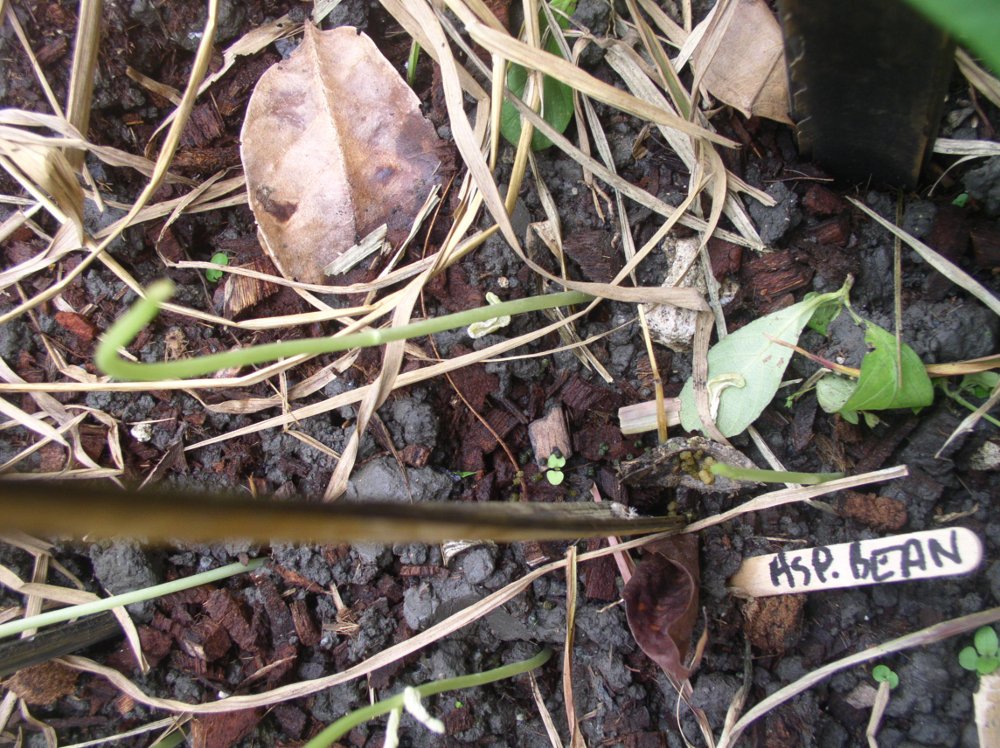
Whose been eating my
beans!
08 March:
It's been
raining all day, so no need to water the garden!
09 March:
Planted 2 seeds
from each of the 4 heritage squash types, in the newly prepared
area with climbing frame. Seeds from a local market bought squash
were planted in various parts of the garden -particularly near
bananas, etc., to provide something to climb on.
Also planted extra amaranth and sesame seeds, both in the heritage
patch and in a few other locations.
12 March:
Rained for most of the day.
In the late afternoon, Terri planted gourds (Bottle Gourd,
Spanish Gourd and Bitter Gourd) in two newly prepared patches.
13 March:
Planted a mixture of almost
everything (both heritage and commercial seeds) in the above two
patches. Including heritage eggplant and rocket, cucumber and
asparagus beans in one (Plot A) and Thai and silky beans and
Dumagete eggplant with chinese cabbage (green and white pechay,
etc.) in the other (Plot B).
The Asparagus beans (from the first planting) that were
partially eaten now seem to be sprouting new leaves. Cucumber
and Okra have healthy shoots -and even the first squash have
started to push through the soil. The rest (eggplant, peppers,
amaranth, onions and seseme) are not identifiably visible yet.
17 March:
Dug over a section of the center
strip and planted some of the Dragon Mix.
The first small shoots (planted 13 March) are visible in the
first patch above (Asparagus beans) but not in the second patch
(Thai beans)'
Some farily large squash shoots
are now visible in the climbing frame areas -mostly the second
one (planted 9 march), where a few small shoots are also
visible. The earlier planted patch (6 March) seem less
vigourous.
19 March:
Some Dragon Mix also planted in
"old" garden.
20 March:
A Tale of Two Plots:
Two plots, both preparted by
the same person on the same day
-and seeded in the same
way by the same person on the 13th March.
Photos taken 20 march:
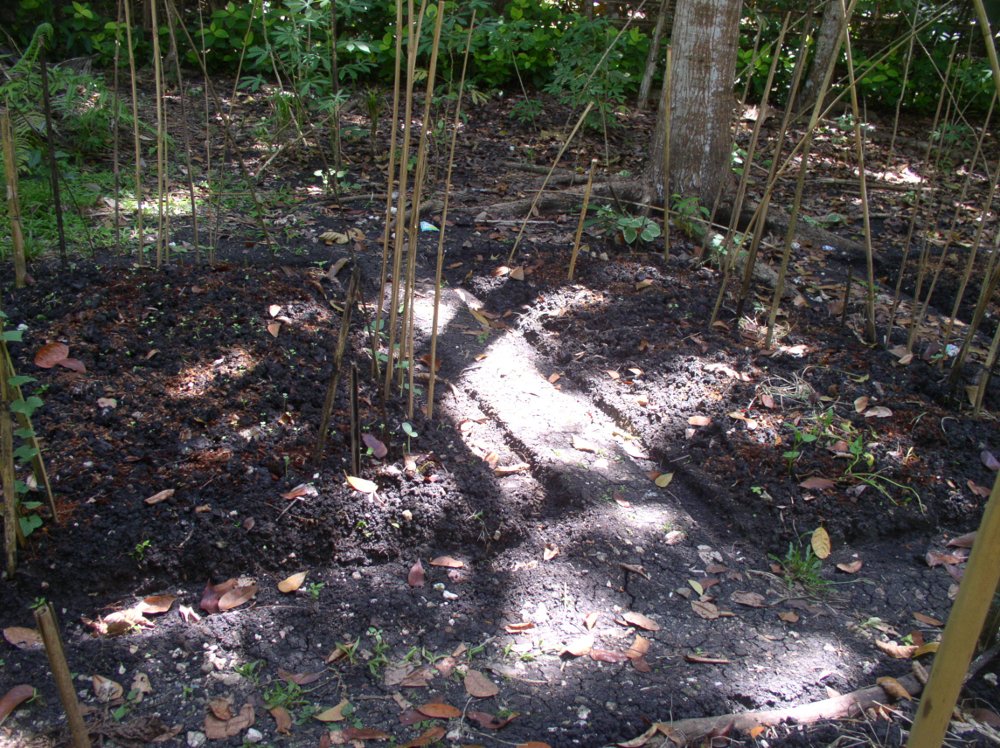 The two plots in situ:
Photo taken early afternoon 20 march:
The two plots in situ:
Photo taken early afternoon 20 march:
21 March:
It rained in the night, so
watering the garden was not neccessary. This left extra time
for other work.
One seed from each of the four heritage squash types was
planted in the last plot in the 2nd row
.
Mixed chicken feed was also planted in various locations
under two nearby banana trees.
Three new plots were added earlier this week (by Terri).
Today, they were given layers of ash, rice straw and coconut
chippings to rot down. Oregano cuttings were planted to
break down the soil surface. Some of our own heritage long
beans were planted to improve soil. Also, one (non-heritage)
bitter gourd in each plot.
Fallen leaves were swept from the paths, and a small compost
heap started. A light scattering of coconut chippings was
applied to several plots.
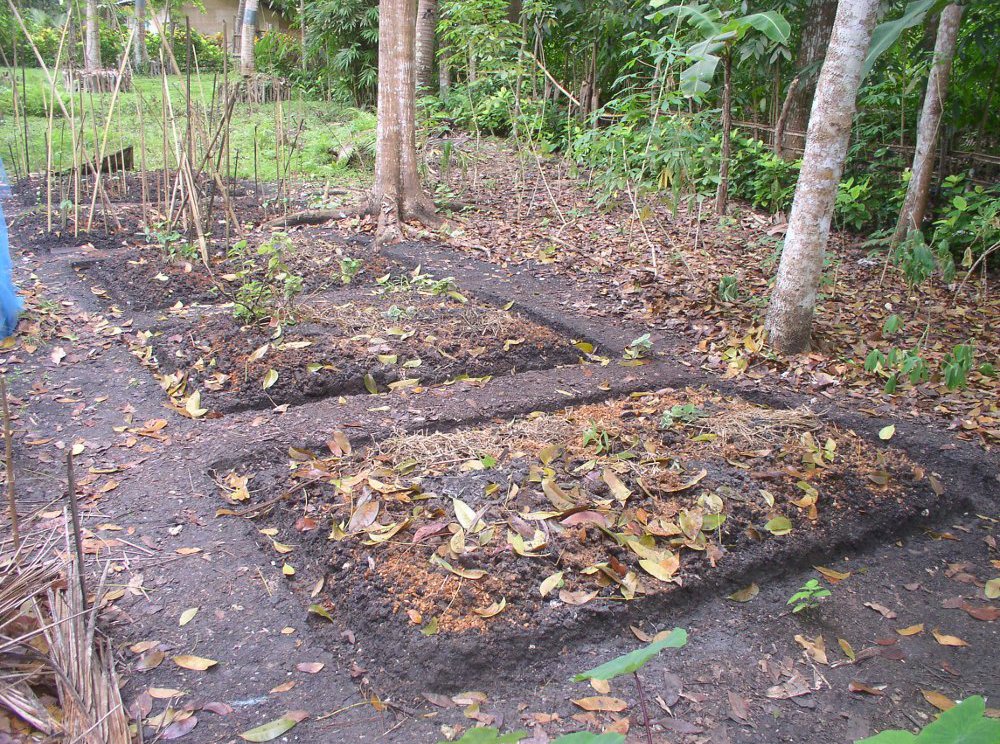
The three new plots (next to the previous two plots,
above)
-with
liberal amounts of organic material left to rot down
The
new compost heap
-next to the small plot with
the newly planted squash
23 March:
The three new
plots were seeded with a few heritage seeds -but mostly
non-heritage seeds as shown below.
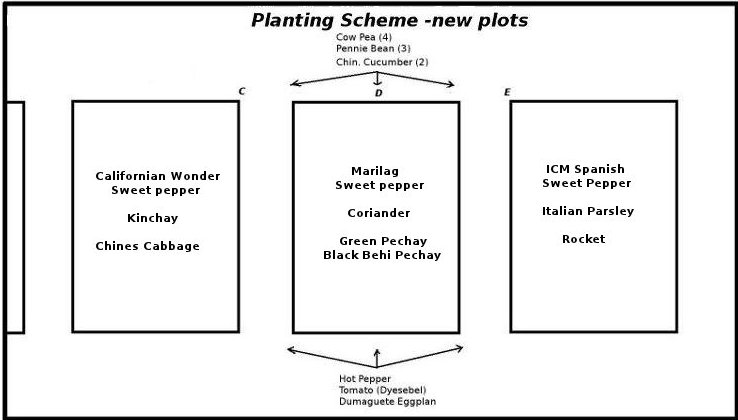
27 March:
Rain and sun
today. Nice planting weather.
Supermarket bought peanuts were sown as soil improver in the
main heritage area and in the largely unused reserve area.
Dragon stir mix was also scattered over the main heritage area
as a kind of cover crop. There are few positively identified
(non-legume) seedlings growing in this patch. Mostly Okra -but
also some other things.
A few shoots from the March 23 planting (in the three new
patches) are starting to be visible.
29 March:
Chicken feed grains thrown
down yesterday between the growing mustard and others
growing in the non-heritage strip got eaten almost
immediately. Today, a mixture of mung beans mixed with
chicken grains and wet earth was scattered, to see if this
has a better chance of thwarting the chickens.
Some more Penny beans and peanuts were planted along the
chicken house fence.
A few French beans (taken from supermarket beans) were
planted (around 3 each) in each of the three new patches).
For some reason, seeds in the middle of the three patches
seems to be growing better than the other two.
Garden Plots
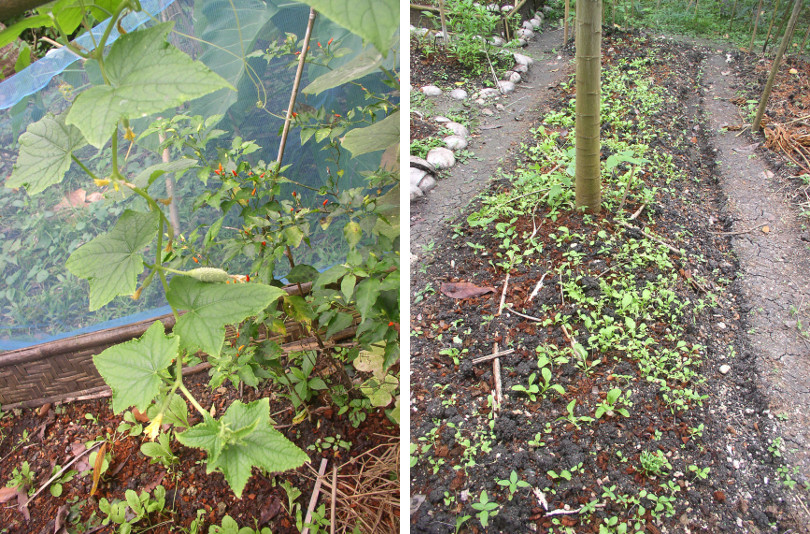 Local Garden Vegetables
Local Garden Vegetables
 Snake Bean Gourd
Snake Bean Gourd
Trevor Batten
<trevor at tebatt dot net>
Baclayon 2013
home
